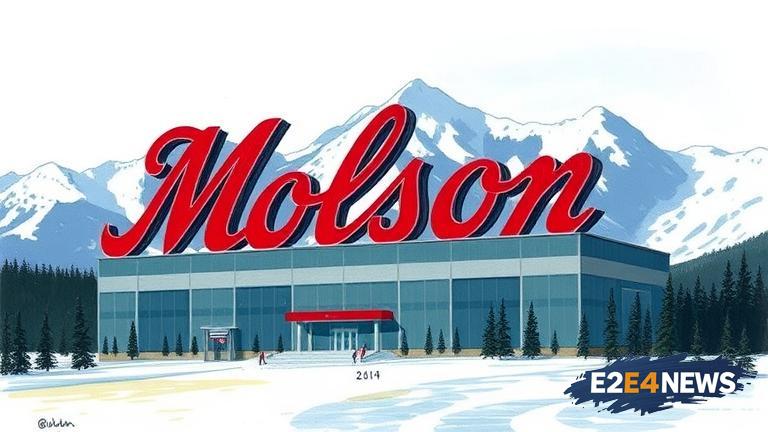Molson Coors, one of the largest beer manufacturers in the world, has announced that it is lowering its sales and profit forecasts for the year. This is the second time the company has revised its forecasts downward, citing a decline in beer sales and increased competition in the market. The company’s CEO, Gavin Hattersley, stated that the decline in sales is due to a combination of factors, including a decline in beer consumption, increased competition from craft breweries, and a shift in consumer preferences towards lower-calorie and lower-alcohol beverages. Despite efforts to revamp its product portfolio and expand its presence in emerging markets, Molson Coors has struggled to regain momentum in recent years. The company’s sales have been impacted by a decline in beer consumption in its core markets, including the United States and Canada. In addition, the rise of craft breweries has led to increased competition in the market, making it challenging for larger breweries like Molson Coors to compete. The company has also faced challenges in its international markets, including a decline in sales in Europe and a slowdown in growth in emerging markets. To address these challenges, Molson Coors has been investing in new products and marketing initiatives, including the launch of new beers and the expansion of its presence in the hard seltzer market. However, these efforts have yet to yield significant results, and the company is now facing increased pressure from investors to turn its business around. The revised forecasts are a blow to Molson Coors, which had been hoping to return to growth in 2023. The company’s shares have fallen significantly in recent months, and the revised forecasts are likely to lead to further declines. Despite the challenges it faces, Molson Coors remains one of the largest and most iconic beer manufacturers in the world, with a portfolio of brands that includes Coors, Miller, and Molson. The company has a significant presence in North America, Europe, and Asia, and is well-positioned to capitalize on growth opportunities in emerging markets. However, to achieve this growth, Molson Coors will need to adapt to changing consumer preferences and find ways to differentiate itself from its competitors. The company is also facing increased pressure from regulators and health advocates, who are calling for stricter controls on alcohol marketing and sales. In response, Molson Coors has been investing in responsible drinking initiatives and partnering with health organizations to promote responsible consumption. The company has also been working to reduce its environmental impact, including the launch of sustainable packaging initiatives and the expansion of its renewable energy portfolio. Despite these efforts, Molson Coors faces significant challenges in the year ahead, including a decline in beer sales, increased competition, and regulatory pressure. To address these challenges, the company will need to continue to innovate and adapt to changing consumer preferences, while also investing in new products and marketing initiatives. The revised forecasts are a setback for Molson Coors, but the company remains committed to its long-term strategy and is confident that it can return to growth in the future. The company’s management team is working to implement a range of initiatives to drive growth, including the expansion of its presence in emerging markets and the launch of new products. These initiatives are designed to help Molson Coors capitalize on growth opportunities and differentiate itself from its competitors. However, the company faces significant challenges in the year ahead, and it will need to work hard to achieve its goals. The decline in beer sales is a significant challenge for Molson Coors, and the company will need to find ways to adapt to changing consumer preferences. The rise of craft breweries has led to increased competition in the market, and Molson Coors will need to find ways to differentiate itself from its competitors. The company’s international markets are also facing challenges, including a decline in sales in Europe and a slowdown in growth in emerging markets. To address these challenges, Molson Coors will need to continue to invest in new products and marketing initiatives, while also working to reduce its costs and improve its efficiency. The company’s management team is committed to its long-term strategy, and is confident that it can return to growth in the future. However, the revised forecasts are a setback for Molson Coors, and the company will need to work hard to achieve its goals.





